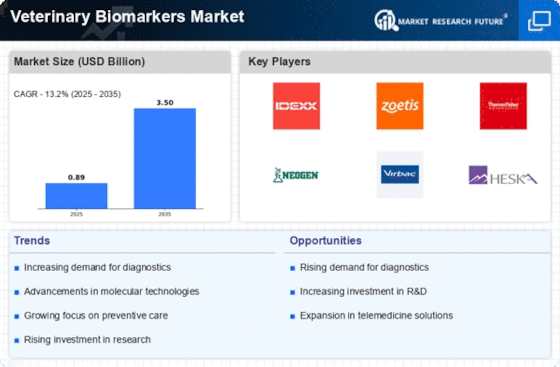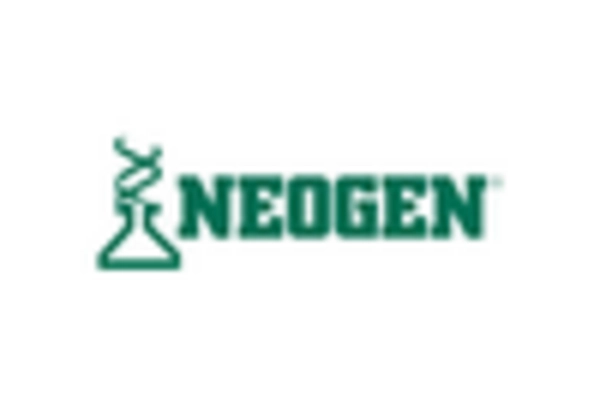Market Trends
Key Emerging Trends in the Veterinary Biomarkers Market
The veterinary biomarkers market is experiencing notable trends as the importance of advanced diagnostics and personalized medicine gains recognition in veterinary care. One significant trend in this market is the growing emphasis on companion animal health. With a rising awareness of the close bond between pets and their owners, there is an increased demand for innovative diagnostic tools and biomarkers to detect and monitor various diseases in companion animals. This trend reflects a broader shift towards preventive and personalized veterinary medicine, aiming to improve the overall well-being of pets.
The integration of advanced technologies, such as genomics and proteomics, is playing a crucial role in shaping the veterinary biomarkers market. The ability to analyze genetic and protein-level information provides veterinarians with valuable insights into the molecular basis of diseases in animals. This trend is driving the development of biomarker panels that can aid in early disease detection, prognostication, and the monitoring of treatment responses, allowing for more targeted and effective veterinary care.
Infectious disease monitoring is another key trend in the veterinary biomarkers market, especially with the increasing global concern about zoonotic diseases. Biomarkers that can identify infections in animals, track disease progression, and assess the risk of transmission to humans are gaining importance. This trend aligns with the concept of One Health, recognizing the interconnectedness of human, animal, and environmental health, and underscores the role of veterinary biomarkers in safeguarding public health.
The demand for point-of-care testing (POCT) in veterinary medicine is on the rise, driven by the need for rapid and on-site diagnostics. Veterinarians are increasingly adopting portable biomarker testing devices that allow for quick and efficient diagnosis without the need for extensive laboratory infrastructure. This trend is particularly beneficial in remote or field settings, where immediate diagnostic results are crucial for timely decision-making in veterinary care.
The focus on preventive healthcare in veterinary medicine is influencing the use of biomarkers for wellness screening and early disease detection. Pet owners are becoming more proactive in managing the health of their animals, leading to a surge in the demand for biomarker-based preventive care solutions. This trend reflects a shift from reactive to proactive veterinary healthcare, aiming to identify and address health issues in animals before they become more severe.
Collaborations and partnerships between veterinary diagnostic companies and academic institutions are driving innovation in the veterinary biomarkers market. These collaborations foster research and development efforts, allowing for the identification of new biomarkers and the validation of existing ones. The collective expertise of industry and academia contributes to the advancement of veterinary diagnostics, supporting the delivery of cutting-edge solutions for the benefit of animal health.
Environmental monitoring through biomarkers is gaining traction in the veterinary sector. Biomarkers that can assess the impact of environmental factors on animal health, such as exposure to pollutants or changes in climate, are becoming increasingly relevant. This trend aligns with the growing awareness of the environmental influences on animal well-being and emphasizes the role of veterinary biomarkers in addressing emerging challenges in this context.


















Leave a Comment